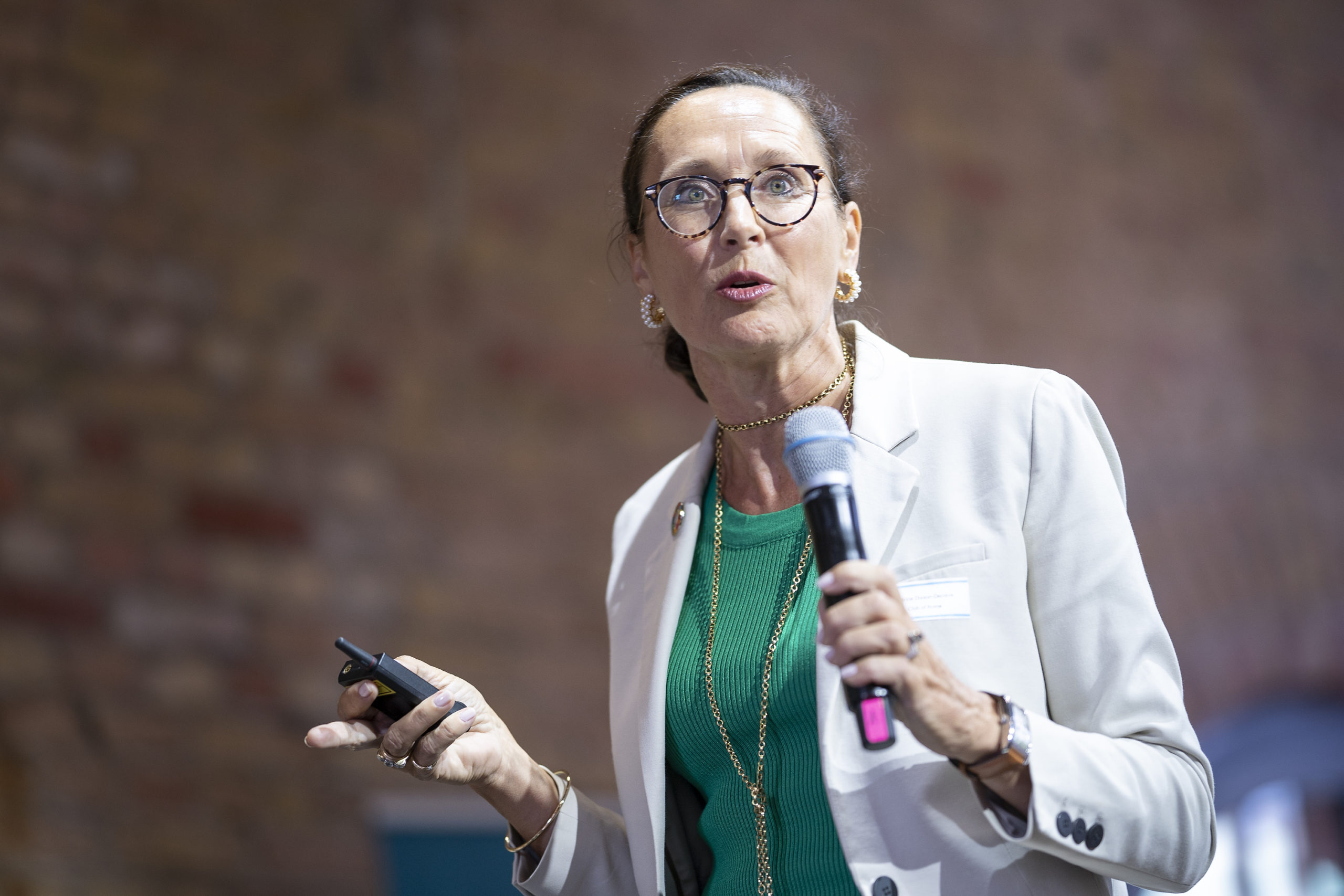INNOVATION LAB
Earth4All - An Overall Approach to Well-Being
Sandrine Dixson-Declève and Per Espen Stoknes present insights from the newly launched Club of Rome report “A survival guide for our planet”, in which they call for a turnaround in international economic and climate policy.
BY
SONJA HENNENPUBLISHED
2. SEPTEMBER 2022READING TIME
3 MIN
Imagine the world at a crossroads. One road is leading to a prosperous future for many, safely so within planetary boundaries. The other to the dismantling of our existing economic and political system and greatly reduced prosperity. A new Club of Rome study calls for drastic changes in policymaking and outlines ‘a survival guide for the planet’ to ensure mankind can avoid collapse.
Sandrine Dixson-Declève and Per Espen Stoknes, two of the authors behind the Earhth4All report, a joint endeavor spearheaded by the Club of Rome, presented the study’s underlying model at our 50 years Limits to Growth Symposium earlier this week.
Before diving into the specificities of the model, Per Espen Stoknes recapped the drastic global increase in inequality. Together with the global ecological trends, this leaves the world with two possible pathways, according to Stoknes. One, where we continue with business as usual and the dangerous trends of the past decades, and a second, that requires a giant leap and extraordinary changes, but could lead to a much more just and prosperous future for all.
In contrast to standard macroeconomic equilibrium models, Earth4All works with a simulation that runs all the way to the year 2100. The model incorporates ten different world regions and considers all of the nine planetary boundaries. The purpose of the model, according to Stoknes, is to challenge our thinking, and allow for complexity and long-term developments to be incorporated into the simulation. At the core of the model lies the interrelation between wellbeing and trust. With increasing inequality, social trust declines. If social trust declines, the speed of public action goes down. This leads to less stable governments, ineffective policies, where one government reverts what the other has done, and an increase in coordination costs. A reduced speed of public action then leads to higher inequality, completing a vicious cycle. It must be our purpose to find ways in policymaking to break this cycle, argued Stoknes, and find a way towards a wellbeing economy.
To outline policy recommendations, the model identifies five key levers that are crucial to steering the world off its current path towards disaster. These include ending poverty, addressing inequality, transforming gender equity, a transformed food system, and the transition towards clean energy. Within each of the five areas, the report outlines three key policy recommendations. For example, for inequality, these are progressive taxation, increased unionization, and a universal basic dividend.
A key outcome of the report, according to the authors, is the extraordinary role of inequality in solving humanity’s crises.
“Without a redistribution of wealth, the climate crisis cannot be solved. The speed of action on planetary boundaries is a function of the speed of action on inequality and poverty.“
Sandrine Dixson-Declève added that the knowledge on the precarity of the crisis and possible solutions to it has to be translated to every citizen. The Earth4All model clearly shows the potential for transformation, said Dixson-Decleve.
“Whatever it looks like, we need a new economic and social system. We need to transform our worldview from an extractive to a regenerative economy. How do we tap into that? How do we tap into that potential? We do that by providing clear solutions.”
To do so, global commons have to be taxed more effectively and the benefits be redistributed back to citizens. Dixson-Declève also emphasized the imperative of empowering women, and ensuring that women are more strongly involved in the decision-making situations.
